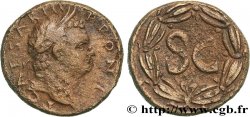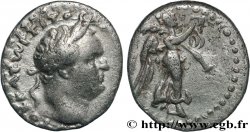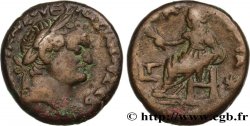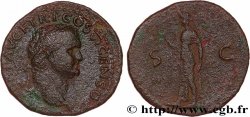brm_177137 - TITUS Denier
недоступный.
Товар уже продан в нашем интернет-магазине
Цена: : 550.00 €
Товар уже продан в нашем интернет-магазине
Цена: : 550.00 €
Тип Denier
Дата: 79
Монетный двор / Город: Roma
Металл: silver
Проба: 900 ‰
Диаметр: 18,50 mm
Ориентация осей монеты: 6 h.
Вес: 3,18 g.
Редкость: R2
Комментарии о состоянии
Exemplaire sur un flan parfaitement centré des deux côtés. Très beau portrait. Revers historiquement important. Jolie patine de collection ancienne avec des reflets dorés
Ссылки в каталоге: :
Лицевая сторона
Аверс: легенда: T CAES IMP VESPASIANVS.
Аверс: описание: Tête laurée de Titus à droite (O*).
Аверс: перевод: “Titus Cæsar Imperator Vespasianus, ( Titus césar empereur Vespasien).
Обратная сторона
Реверс: легенда: TR P VIII - COS VII P P.
Реверс: Описание: Trophée aux pieds duquel se trouve un captif agenouillé.
Реверс: перевод: “Tribunicia Potestate octavum Consul septimum”, (Revêtu de la huitième puissance tribunitienne consul pour la septième fois).
Комментарий
Ce denier fait référence aux victoires de Titus sur les Juifs ou d’Agricola sur les Bretons. Au revers le captif masculin semble nu et agenouillé, les mains liées dans le dos. Le trophée est constitué d’un casque, d’une cuirasse, d’un bouclier rond, d’un fourreau de glaive et de deux javelines entrecroisées qui ne correspondent en aucun cas à des armes bretonnes. Pour Titus, nous avons successivement trois émissions, la première Titus étant co-empereur (RCV. 2449), frappée avant la mort de Vespasien en juin79, puis une première émission de Titus auguste avec le revers précédent (RCV. 2505) et un nouveau revers avec une nouvelle salutation impériale (RCV. 2511) qui peut laisser penser à une série de victoires bretonnes. Ces trois types ont été frappés entre janvier 79 et juin 80.








 Cообщить об ошибке
Cообщить об ошибке Распечатать страницу
Распечатать страницу Отправить мой выбор
Отправить мой выбор Задать вопрос
Задать вопрос Consign / sell
Consign / sell
 Информация
Информация



